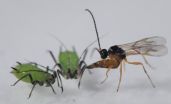(Press-News.org) In a cautionary editorial alongside a related article in today's issue of the British medical journal BMJ, leading experts in health policy and behavioral economics argue that pay-for-performance (P4P) schemes – which financially reward doctors and hospitals for hitting specific, numerical targets in such matters as preventing hospital readmissions or prescribing certain drugs – are likely to do more harm than good.
Such schemes are being adopted as a key component of the Accountable Care Organization strategy mandated by the 2010 health reform and are now part of the Medicare program, Massachusetts' cost-control legislation and virtually all major new private health insurance payment contracts.
Yet the editorial, echoing a theme of the accompanying article, says there's very little evidence that P4P has improved patient survival or any other measure of public health.
"Despite a dearth of robust evidence that P4P is clinically effective in health care, payers charge ahead with implementing everywhere an intervention that has proven to work nowhere," the authors write.
Worse still, there is mounting evidence – reinforced by the latest findings in behavioral economics – that such schemes may actually do harm, the authors say.
For example, doctors and nurses may perceive detailed, overly prescriptive financial P4P contracts as "controlling," which can cause them to dissociate from their work, lose their intrinsic motivation to do their very best for the patient, and engage in gaming – the medical equivalent of "teaching to the test."
According to the authors, such gaming – e.g. "upcoding" a diagnosis to another condition that yields a higher payment – is already rife. For instance, labeling a pneumonia patient's condition as "complex" rather than "simple" can increase the hospital's payment by 42 percent.
"Pay for performance inverts medical priorities, making care an instrument for generating money, rather than vice versa," said Dr. David Himmelstein, professor at the City University of New York's School of Public Health and senior author of the editorial. "It can mutate honesty and altruism into accounting and legal trickery."
Dan Ariely, James B. Duke Professor of Psychology and Behavioral Economics at Duke University, co-author of the editorial and the author of numerous research studies and three bestselling books on behavioral economics, including "The (Honest) Truth about Dishonesty," said: "Several studies show that while performance-based rewards can increase output for straightforward manual tasks, they can undermine motivation and actually worsen performance on complex cognitive tasks, such as those required in medicine. The unintended consequence is likely a worsening of care, not its improvement."
Lead author Dr. Steffie Woolhandler, also a professor at CUNY's School of Public Health, noted another hazard: Some physicians in safety-net hospitals may score poorly because of circumstances beyond their control, such as their institution's financial distress. "In such situations, penalizing low-scorers can make matters worse, effectively punishing patients who have nowhere else to go," she said.
Himmelstein and Woolhandler are also visiting professors of medicine at Harvard Medical School and the co-founders of Physicians for a National Health Program, an organization of 18,000 doctors who advocate for a single-payer health care system. PNHP played no role in supporting their research.
The editorial concludes, "We worry that P4P may simply not work because it changes the mindset for good doctoring. However, if P4P schemes must be envisaged then rigorous consideration of their likely benefit prior to their implementation seems essential," referring to an exacting P4P checklist developed by the authors of the related article.
INFORMATION:
"Why pay for performance may be incompatible with quality improvement," Steffie Woolhandler, M.D., M.P.H., Daniel Ariely, Ph.D., David U. Himmelstein, M.D. BMJ, Aug. 15, 2012. An advance copy of the EMBARGOED article is available to media professionals on request.
The related article:
"When financial incentives do more good than harm: A checklist," Paul P. Glasziou, Heather Buchan, Chris Del, et al. BMJ, Aug. 15, 2012.
In a major breakthrough, an international team of scientists has proven that addiction to morphine and heroin can be blocked, while at the same time increasing pain relief.
The team from the University of Adelaide and University of Colorado has discovered the key mechanism in the body's immune system that amplifies addiction to opioid drugs.
Laboratory studies have shown that the drug (+)-naloxone (pronounced: PLUS nal-OX-own) will selectively block the immune-addiction response.
The results – which could eventually lead to new co-formulated drugs that assist patients ...
When a carnivore becomes extinct, other predatory species could soon follow, according to new research. Scientists have previously put forward this theory, but a University of Exeter team has now carried out the first experiment to prove it.
Published today (15 August 2012) in the Royal Society journal Biology Letters, the study shows how the demise of one carnivore species can indirectly cause another to become extinct. The University of Exeter team believes any extinction can create a ripple effect across a food web, with far-reaching consequences for many other animals. ...
CAMBRIDGE, MA -- From an engineer's perspective, plants such as palm trees, bamboo, maples and even potatoes are examples of precise engineering on a microscopic scale. Like wooden beams reinforcing a house, cell walls make up the structural supports of all plants. Depending on how the cell walls are arranged, and what they are made of, a plant can be as flimsy as a reed, or as sturdy as an oak.
An MIT researcher has compiled data on the microstructures of a number of different plants, from apples and potatoes to willow and spruce trees, and has found that plants exhibit ...
It's become a sport of sorts, predicting the low point of Arctic sea ice each year. Expert scientists with decades of experience do it but so do enthusiasts, whose guesses are gamely included in a monthly predictions roundup collected by Sea Ice Outlook, an effort supported by the U.S. government.
When averaged, the predictions have come in remarkably close to the mark in the past two years. But the low and high predictions are off by hundreds of thousands of square kilometers.
Researchers are working hard to improve their ability to more accurately predict how much ...
Girls with Attention Deficit Hyperactivity Disorder (ADHD) – and their families – often look forward to the likely decline in visible symptoms such as fidgety or disruptive behavior as they mature into young women.
However, new findings from UC Berkeley caution that, as they enter adulthood, girls with histories of ADHD are more prone to internalize their struggles and feelings of failure – a development that can manifest itself in self-injury and even attempted suicide.
"Like boys with ADHD, girls continue to have problems with academic achievement and relationships, ...
An intensifying Tropical storm called Kai-Tak (locally known as Helen) is causing more rain in the Philippines as it passes over northern Luzon. The Philippines have had a very wet month with the capital of Manila experiencing massive flooding earlier this month. NASA's TRMM satellite identified where the heavy rain was falling.
Kai-tak has caused another day of warnings in the Philippines. On August 14, Public storm warning signal #1 is in effect for these provinces in Luzon: La Union, Nueva Ecija, Pangasinan, Rest of Aurora, and Tarlac.
In addition, Public storm warning ...
Tropical Storm Hector is battling wind shear over the open waters of the Eastern Pacific Ocean, and NASA satellite data shows that has been affecting its organization and rainfall rates.
The Tropical Rainfall Measuring Mission satellite known as TRMM is managed by both NASA and the Japanese Space Agency. From its orbit in space, TRMM's instruments can estimate rainfall from tropical cyclones.
The TRMM satellite captured rainfall rates from Tropical Storm Hector on August 14, 2012 1:28 a.m. EDT. TRMM data showed that Hector had a small area of moderate to heavy rainfall ...
VIDEO:
Filmed at 10,000 frames per second by Japan's NHK television, movies like this of electromagnetic bursts called "sprites " will help scientists better understand how weather high in the atmosphere relates...
Click here for more information.
High above the clouds during thunderstorms, some 50 miles above Earth a different kind of lightning dances. Bursts of red and blue light, known as "sprites," flash for a scant one thousandth of a second. They are often ...
Many elderly people spend their last years alone. Spouses pass and children scatter. But being lonely is much more than a silent house and a lack of companionship. Over time, loneliness not only takes a toll on the psyche but can have a serious physical impact as well.
Feeling lonely has been linked to an increased risk of heart disease, Alzheimer's disease, depression and even premature death. Developing effective treatments to reduce loneliness in older adults is essential, but previous treatment efforts have had limited success.
What to do? Researchers at UCLA ...
In 1714, the British government held a contest. They offered a large cash prize to anyone who could solve the vexing "longitude problem" — how to determine a ship's east/west position on the open ocean — since none of their naval experts had been able to do so.
Lots of people gave it a try. One of them, a self-educated carpenter named John Harrison, invented the marine chronometer — a rugged and highly precise clock — that did the trick. For the first time, sailors could accurately determine their location at sea.
A centuries-old problem was solved. And, arguably, crowdsourcing ...



